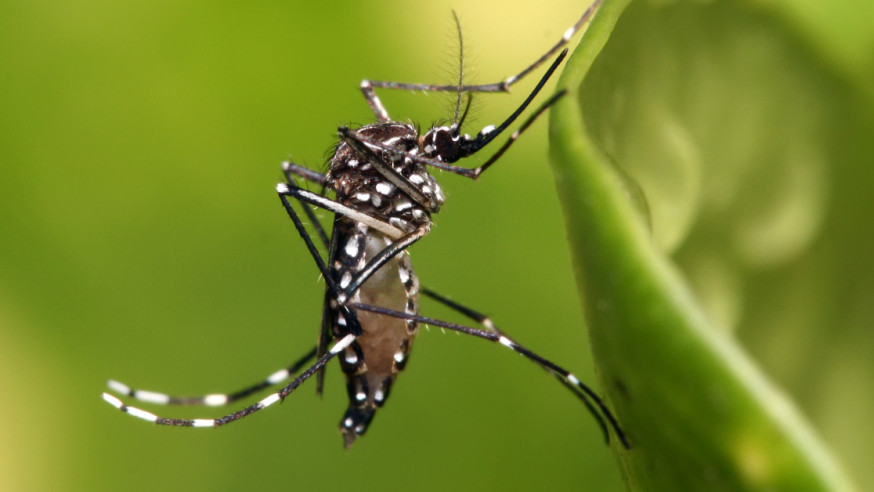Residents reminded to take precautions against West Nile and Zika Viruses
Mosquito season is underway and Dallas County Health and Human Services (DCHHS) is reminding residents to take precautions to avoid exposure to mosquitoes that can carry West Nile and Zika viruses.
“With recent and upcoming rains, as well as potential travel plans, we are reminding residents to use personal protection to avoid exposure to mosquitoes,” said Zachary Thompson, DCHHS Director.
DCHHS recommends the 4Ds to protect against mosquitoes:
DEET All Day, Every Day: When outside, use insect repellents that contain DEET or other EPA approved repellents and follow instructions.
Dress: Wear long, loose, and light-colored clothing outside.
Drain: Drain or treat all standing water in and around your home or workplace.
Dusk & Dawn: Limit outdoor activities during dusk and dawn when mosquitoes are most active.
While the 4Ds are important, draining or treating standing water is crucial to stop mosquitoes from breeding. Standing water can be treated with EPA-approved larvicides that are available for retail purchase. Larvicides are products used to kill immature mosquitoes before they become adults. Larvicides are applied directly to water sources that hold mosquito eggs, larvae, or pupae. When used well, larvicides can help reduce the overall mosquito burden by limiting the number of mosquitoes that are produced, according to the Centers for Disease Control and Prevention.
To date, two mosquito traps have tested positive for West Nile virus in Dallas County in 2016 and there have been no reports of human West Nile virus cases. There have been no reports of Zika virus being transmitted locally by mosquitoes, but citizens may be traveling to areas where Zika virus transmission is active and ongoing, which include Central and South America, and the Caribbean.
“Travelers need to take extra precautions to avoid mosquito exposure, especially pregnant women and women planning to get pregnant,” said Dr. Christopher Perkins, DCHHS medical director/health authority.
Travelers can protect themselves further by doing the following:
· Choose a hotel or lodging with air conditioning or screens on windows or doors.
· Sleep under a mosquito bed net if you are outside or in a room that is not well-screened.
Pregnant women and women planning to get pregnant should consider postponing travel to areas where Zika virus transmission is ongoing, and talk to their doctor or other healthcare provider first and strictly follow steps to avoid mosquito bites during the trip.
For more information on Zika virus, including prevention, go to the DCHHS website.
For additional information, contact:
Erikka D. Neroes, Public Information Officer
[email protected]
214.819.6329 (office) 214.394.8109 (cell)
Zachary Thompson, Director
214.755.9299 (cell)






